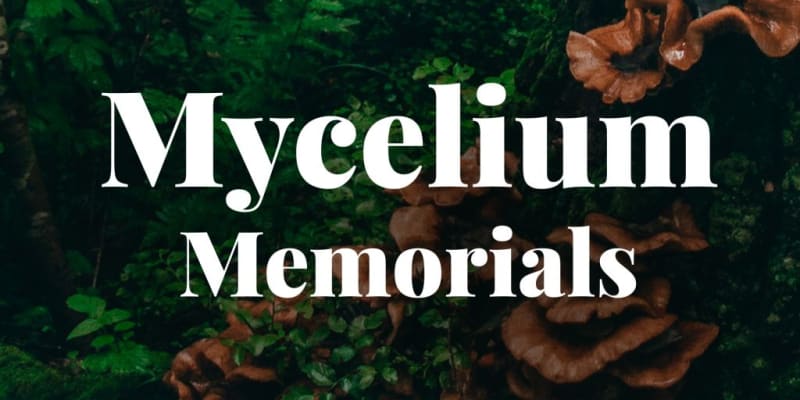
Mycelium Memorials: Dying Regeneratively to Nurture New Life
#Biodesign #Biomaterial #CircularDesign #Death #Environment #EnvironmentalResponsibility #Regenerative #Research #Speculative #Sustainability #Technology #Trends
From carbon-intensive cremation to resource-depleting burial, the final disposition industry has been facing tremendous environmental and social challenges. Project Mycelium Memorial seeks to find a biology-led regenerative approach to transform death into living opportunities for new organisms. By analysing the success case of the Dutch company, Loop Biotech, using design thinking methodologies; we would then look into future thinking to localise Loop's business model in the UK market. Speculating on how regenerative final disposition methods can be implemented in the UK as a sustainable measure to improve environmental issues raised by traditional burial methods.
The Impact of Traditional Body Disposition
With COVID changing the funeral industry globally, society is paying more attention to the funeral market. However, with land burials and cremations still taking the majority of final disposition choices, it is clear that more sustainable measures are needed to minimise the environmental and health impact inflicted by the funeral industry.
The Bane of Burial
Traditional burials use wooden coffins with metallic handles, making it difficult for both the body and the container to decompose. Preservatives, metallic wastes, paint from the coffin combine with the and chemicals from embalming the body would often delay the process of decomposition and the release of toxic wastes to the land. As a result, the land will be less fertile, and the surrounding water bodies will risk contamination.
Completing the Regenerative Cycle
Using locally sourced raw materials such as mycelium, saw dust and wood pieces from the nearby forests, LOOP coffin does not have pollutants which are typically found in a traditional wooden coffin post burial. By skipping the process of embalmment, LOOP had gone beyond eliminating pollution turning the soil into a fertile land to facilitate more growth, it had also sped up the process of decomposition, which would allow more bodies to be buried in the same space as well.
Magical Mycelium
Mycelium is a thin white fibre, that can grow on any surface. It is the root structure for mushrooms, it has the power to convert any dead materials into compost into living organisms. It is a recycler of nature, and due to its fast-growing rate, it plays an important role in turning the body into compost.
Understanding Body Disposition & Environmental Impact
The assessment gave a general overview of the funeral services available in the UK and how it impacts the environment. There is a growing trend of greener funeral service options in the UK. However, none of the services (including water cremation) can make it into the “Restorative” part of the regenerative chart.
Trends in UK's Body Disposition Methods
Wanting to investigate the feasibility of mycelium burial in the UK I would be looking at the current trend of the funeral market in the UK, as well as people’s general attitude towards the current body disposition methods.
Mycelium Memorial Full Project
To report inappropriate content, an infringement of copyright, or to report a problem on the Portfolio platform, please contact the Digital Team
